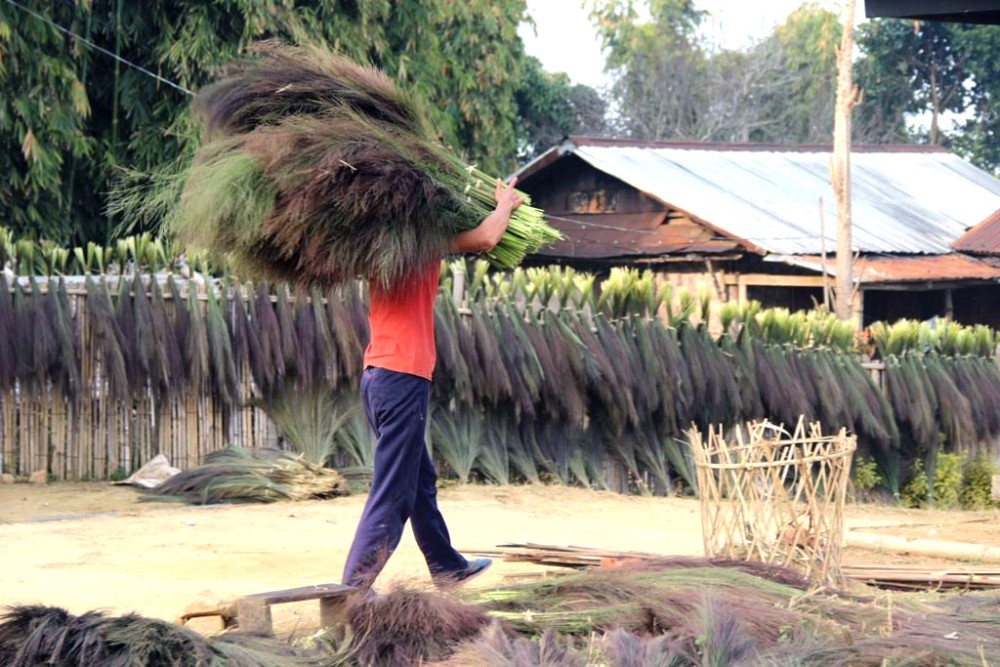A man carries bundles or broom grass/tiger grass (scientific name Thsolonea Maxima) at Dibuia village, some 55 kilometers away from Mokokchung town to be dried. The naturally grown broomsticks are harvested during the month of February-March every year and are exported to other states. (Morung Photo)

Farmers in Changkikong range under Mokokchung have taken to broom cultivation to increase their income
Longrangty Longchar
Mokokchung | February 14
Nagaland is known for its abundance of flora and fauna, which remain mostly untapped. At Dibuia village and her neighboring villages like Waromung and others under Changkikong range, the villagers are doing brisk business by harvesting and exporting the abundant broom grass or Tiger grass (scientific name Thysolonea Maxima) which are exported to other states, especially Assam.
Broom grass is harvested only once a year, during the months of February and March. After the harvest, they are sun dried, bundled and sold to agents from Mariani in the truckloads.
Khaba Longchar of Dibui village, who is a broom grass merchant states that he buys the broom grass from the villagers, processes them and contacts the agents from Assam for the sale. He usually sells about two pick-up truckloads of broom grass every year and earns a substantial amount for them. The adjoining village of Waromung has a similar story to tell.
It is learnt that these broom sticks which are exported to Assam find their way to other states like Gujarat, Rajasthan and even abroad, where broom grass does not grow in abundance. Longchar disclosed that he started the business since there was a lot of demand from Assam.
It may be noted that gathering the broom grass is not an easy task, as villagers have to enter the deep forests to collect them. Harvesting the broom grass is a once in a year affair and so the villagers cannot invest much on this viable cash crop, until nature regenerates them over the months.
Increasing deforestation and the unscientific plucking of broom grass has also adversely impacted in its regeneration. There are reports that this year’s quantity of broom grass harvested is lesser than last year’s by a few thousand kilograms.
In Nagaland, trade of this economically viable grass remains in a stage of infancy. However, stories from other states regarding the trade of broom sticks are a sign of encouragement for the Nagaland State Government to facilitate cultivators here. Take for instance the case of Tripura, where broom grass occupies an important place in the state’s rural economy.
The Pecharthal Broom Makers Society of Dephacherral Hamlet in the remote Kanchanpur sub-division of North Tripura, launched a pilot project of collecting broom rhizomes from the wild and planting it in an abandoned Jhum plot with the assistance of Jhumias (Jhumia is a person who practises shifting cultivation or “Jhuming”, the slash and burn cultivation common among the Nagas).
The broom grass cultivators were provided technical and marketing support by the Centre for Forest-Based Livelihood and Extension. Financial help came from an external funding agency, enabling cultivators to earn money in terms of Lakhs.






